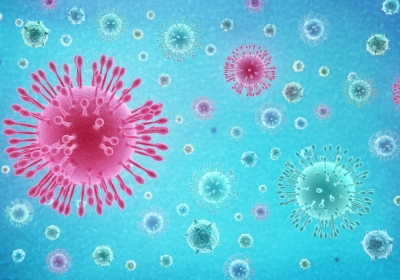For weeks, infectious disease experts have been investigating why the coronavirus is proving particularly devastating to males, with early theories from China suggesting that higher rates of smoking among men may be to blame. But a new study from the Centers for Disease Control and Prevention (CDC) is suggesting it may have more to do with biology — specifically, genetics — than lifestyle.
Confiance News gathered from Yahoo News.
The research, released on Monday in the CDC’s Morbidity and Mortality Weekly Report, found a higher prevalence of COVID-19 in males across every pediatric age group — including infants. Fifty-seven percent of the more than 2,572 pediatric cases of COVID-19 studied (out of 149,750 cases overall) were found in males, ranging in age from newborns to 18.
To be clear, the research did not suggest that parents should now be concerned about their male children — or female children — getting seriously ill from COVID-19. The risk for children remains very low.
Most of the children reported symptoms of cough or fever, but only a small fraction (five percent) were hospitalized, bolstering reports that kids often develop a mild case of the virus. Those hospitalized were far more likely to report underlying health conditions than those who weren’t, including asthma, chronic lung disease and cardiovascular disease. Only 0.1 percent of the children infected died.
The median age of the more than 2,500 children with COVID-19 was 11, with over a third of cases involving teens between the ages of 15 and 17. But the most striking statistic for the researchers was that 57 percent of cases occurred among males — an even higher number than the adult group, in which 53 percent of the cases involved males. The researchers conclude that the higher rate of boys testing positive in every pediatric age group “suggests that biologic factors might play a role in any differences in COVID-19 susceptibility by sex.”
So what exactly may be driving the higher incidence in young boys, and should parents take this as a concern?
Gregory A. Poland, MD, an infectious diseases expert and head of the Mayo Clinic’s Vaccine Research Group, tells Yahoo Lifestyle that the study is no reason to panic, and shouldn’t be taken as a roadmap for parents with boys. Instead, Poland helps unpack what the new research can teach us.
Females may have a “sex advantage” over men in their immune response
Poland says the concept that females are less susceptible to disease is a “generalizable phenomenon beyond just infectious diseases” (such as COVID-19). “In fact, women also tolerate starvation and dehydration and survive longer than men do in austere environments,” Poland tells Yahoo Lifestyle. “So there does appear to be a sex advantage on the side of females that males don’t have,” meaning a better immune response.
Hormones are unlikely to be the driving factor
Although the gender disparity may lead to theories about hormones, Poland says studies like this one are the reason researchers don’t consider hormones to be the source. “These are children who are absent the kind of hormonal levels or differences that we would see post-pubertal,” Poland says, adding that the disparity in infection is one seen in post-menopausal women, too. “That doesn’t mean there couldn’t be some still fine hormonal differences. But it leads to the idea that while hormones are important, it’s again just one factor in this complex web that still needs to be teased apart.”
The higher prevalence in COVID-19 in boys may involve genetics
It’s still unclear to experts exactly why women respond better to certain diseases and harsh environments, but Poland says that genes may inform the answer. “We don’t fundamentally understand this… but what we do know is that females — depending on the virus — will tend to activate or suppress different genes than males do when their cells are exposed to these viruses,” says Poland. “So we think a strong driver of this is going to be just genetic, not just hormonal.”
Some hypothesize that this may be linked to evolution of the genders
There is no evidence that females may be better equipped to fight disease due to evolution, but Poland says the idea has been floated. “We don’t have any evidence but people always postulate … the idea has been in general: ‘Is it this way for the primary reason of propagation of the species?’” he says. “You need women to have children. You can have a lot of children with a few men, but you can only have them one by one with women.”
An immunologist at the Heinrich Pette Institute in Hamburg, Germany, Marcus Atlfeld, raised another theory in a Scientific American piece from 2016 suggesting that “women might have evolved a particularly fast and strong immune response to protect developing fetuses and newborn babies.” Poland says that, in the absence of evidence, it may not be possible to form a conclusion.
Researchers have found a similar disparity with vaccines
Poland says males facing disease at higher rates than women is something currently being studied through the lens of vaccines. “When you give males versus females of any age a vaccine, females almost always respond better than males,” Poland says. He says that it shows females, even when faced with a small viral load of an inactivated disease, are often able to respond better than males — something seen with vaccines against smallpox, measles and influenza.
Females’ “supercharged immune system” has a downside
Women responding more efficiently to disease may be beneficial in the midst of a coronavirus pandemic, but Poland says it has a negative side, too — a higher likelihood that the immune system will overreact. “This supercharged immune system has a negative side to it,” says Poland. “And that is women have higher rates of autoimmune diseases — diseases where their own immune system attacks their own body.” (According to the National Institutes of Health, roughly eight percent of the population has an autoimmune disease; 78 percent of them are women).
It could also be true that young girls simply aren’t showing symptoms
Like the authors of the CDC study, who note many limitations of the research, Poland says the study doesn’t necessarily mean that more young boys are getting the virus. Instead, it could be showing that they do not have the same “quality” of immune response that girls do. “There could be a lot of girls out there who had it but had zero symptoms,” says Poland. “So she may not even go and be tested to know that she has COVID-19. The boy is more likely to have symptoms [and] that may drive testing.”
Parents should not panic, nor consider females immune from COVID-19
For that reason and many others, Poland says the new research should not be a reason for parents of boys to panic, nor for parents of girls to consider them immune.
“I would not want this to give false reassurance to a parent because yes, there were girls that got sick,” Poland tells Yahoo Lifestyle.
“There were girls that had severe illness. So I would put it in the category of, that’s interesting. More research needs to be done. But for me as a parent, I put whatever appropriate layers of protection around my children, regardless of their gender.”
According to experts, people over 60 and those who are immunocompromised continue to be the most at risk. If you have questions, please reference the CDC and WHO’s resource guides.
(Yahoo News)








Leave a comment